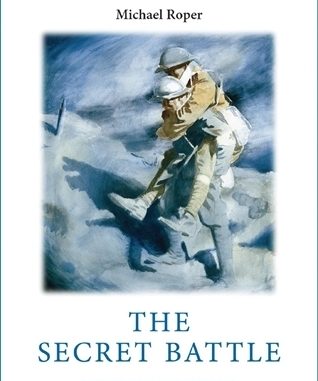
Michael Roper’s The Secret Battle: Emotional Survival in the Great War (2008) explored how young British civilian soldiers endured the unprecedented strain of trench warfare not simply through military discipline but through deep emotional resources rooted in family ties, especially those with mothers. He shows that letters, parcels and memories of home acted as lifelines, sustaining morale, creating illusions of safety and allowing men to regress into childlike states while also asserting their manhood under fire.[1]Coping was shaped by everyday domestic practices—food, clothing, rest, washing, nursing—which were recreated at the front and underpinned both comradeship and endurance.[2] Psychoanalytic insights (Bion, Klein) illuminate how soldiers managed contradictory emotions of love and hate, courage and cowardice, with mothers functioning as psychic containers for dread and anxiety.[3] Resilience, Roper argues, lay not in unbroken toughness but in the fragile interplay of dependence and independence: soldiers survived by drawing on maternal care, comradeship, humour and rituals of writing, even while trauma, grief and “nameless dread” exposed the limits of endurance.[4] Ultimately, Roper reframes coping not as stoic resilience alone but as a precarious emotional negotiation, where family bonds and care networks enabled many men to live through the war, though always at significant psychic and intergenerational cost.[5]
Roper argues that the vast majority of men coped with trench warfare in the limited sense of being able to endure and continue fighting, but this coping was fragile, relational and often temporary rather than heroic. Most soldiers avoided outright collapse by relying on family ties—especially mothers’ letters and parcels—which sustained morale and acted as psychic “containers” in Wilfred Bion’s sense, meaning that mothers absorbed and processed the soldiers’ fears so they did not become overwhelming.[6] Alongside this, domestic routines of food, warmth, rest and hygiene, recreated in the trenches, offered stability, while comradeship and officers’ care helped men feel held within a network of support.[7] Humour, ritual, repression and even regression to childlike states also served as strategies of endurance. Yet trench warfare repeatedly threatened to overwhelm these supports, producing what Bion later termed “nameless dread”—a state of uncontainable psychic terror in which fear could no longer be absorbed by others and returned as raw, paralysing anxiety.[8] For most men, coping therefore meant a precarious balance between containment and dread, between endurance and collapse; while only a minority broke down, survival itself came at deep psychic and familial cost, carried into grief, anger and strained relationships after the war.[9]
[1] Michael Roper, The Secret Battle Emotional Survival in the Great War (Manchester: Manchester University Press, 2008), pp.xi–xiii, 2–6, 48–71.
[2] Michael Roper, The Secret Battle Emotional Survival in the Great War (Manchester: Manchester University Press, 2008), pp.121–146, 159–188.
[3] Michael Roper, The Secret Battle Emotional Survival in the Great War (Manchester: Manchester University Press, 2008), pp.14–24, 243–266.
[4] Michael Roper, The Secret Battle Emotional Survival in the Great War (Manchester: Manchester University Press, 2008), pp.205–232, 243–266.
[5] Michael Roper, The Secret Battle Emotional Survival in the Great War (Manchester: Manchester University Press, 2008), pp.276–320.
[6] Michael Roper, The Secret Battle Emotional Survival in the Great War (Manchester: Manchester University Press, 2008), pp.xi–xiii, 48–71, 85–106, 14–24.
[7] Michael Roper, The Secret Battle Emotional Survival in the Great War (Manchester: Manchester University Press, 2008), pp.121–146, 159–188.
[8] Michael Roper, The Secret Battle Emotional Survival in the Great War (Manchester: Manchester University Press, 2008), pp.243–266.
[9] Michael Roper, The Secret Battle Emotional Survival in the Great War (Manchester: Manchester University Press, 2008), pp.205–232, 276–320.

